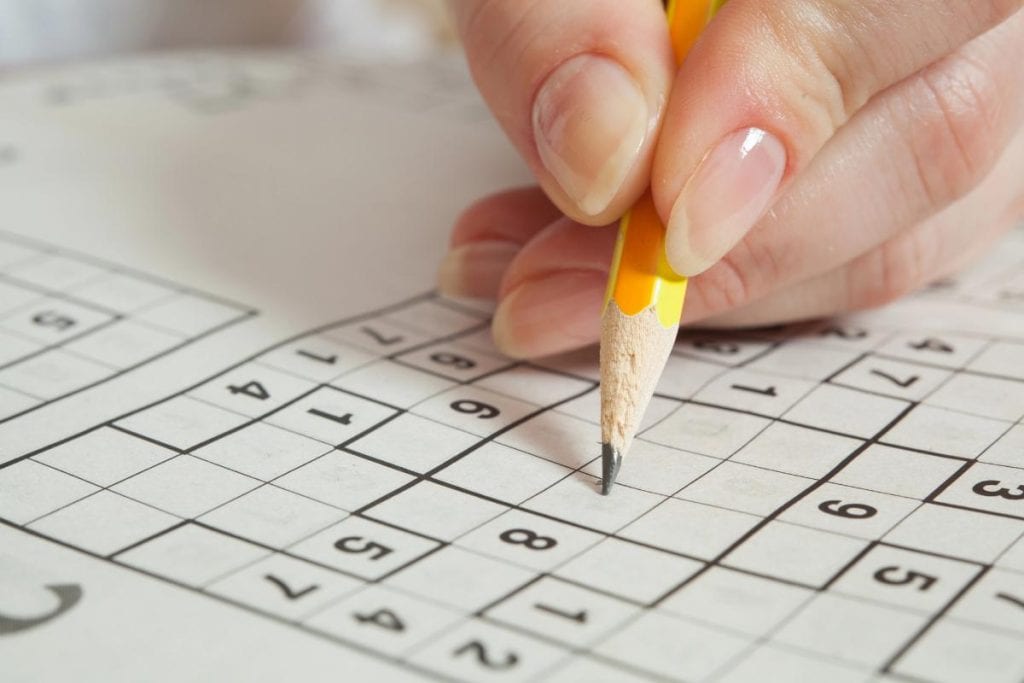Keeping our brains young, strong, and healthy is an important way of preserving all of our faculties, especially as we get older, as we deal with daily stresses and responsibilities, and we don’t spend as much time learning as we used to. Improving your cognitive health can help you be sharper, and improve your recall abilities, and may even do some work to help stave off issues of cognitive decline such as dementia. As such, here, we’re going to look at a host of ways to work on those cognitive abilities.

Understand the mind-body connection
You might think that all of the tips here are going to be focused on what you can do to sharpen your mind and, indeed, while we will spend a lot of time looking and puzzles and brain training exercises, it’s important to understand that your physical health can contribute to your cognitive health a great deal, as well.
Chronic illnesses, for instance, from blood pressure to diabetes, can affect certain aspects of your cognitive health, usually as a risk factor for cognitive impairment issues, such as diabetes. As such, going for a routine physical, taking care of your blood pressure, managing your cholesterol, and being mindful of the threat that diabetes can pose are all vital for your cognitive health.
Have a good night’s sleep
Good sleep is crucial for cognitive health, playing a vital role in memory consolidation, learning, and overall brain function. During sleep, the brain processes and stores information from the day, strengthening neural connections and facilitating long-term memory retention.
Adequate sleep also supports cognitive functions such as attention, problem-solving, and decision-making. Quality sleep helps clear metabolic waste from the brain, reducing the risk of neurodegenerative diseases like Alzheimer’s. Certain nutrients, such as magnesium l-threonate, have also been studied for their potential to enhance sleep quality and support brain function, particularly by crossing the blood-brain barrier and influencing synaptic plasticity.
Additionally, sleep regulates mood and reduces stress, which can negatively impact cognitive performance. Consistent, restorative sleep enhances creativity and mental agility, ensuring the brain operates at its optimal capacity. Therefore, prioritizing good sleep is essential for maintaining cognitive health and promoting overall mental well-being.
If you’re looking for additional ways to support your cognitive performance, certain brain supplements may offer ingredients designed to enhance focus, memory, and overall brain health. These can be a helpful addition to a well-rounded approach to mental wellness.

Play some Sudoku
Mental puzzles and games that require thinking and concentration can improve your cognitive health. Playing a Sudoku puzzle routinely is one that’s well worth considering. This game might look like it’s about math, from all of the numbers, but in reality, it’s about placing down numbers, from 1 to 9, and making sure that the same number isn’t anywhere in the same row, column, or box. While that might sound simple, it does test your memory and improve your ability to recognize patterns. There are various Sudoku puzzles of different levels of difficulty, as well, so it’s not difficult to find the game that matches your level.
Crosswords
Crosswords are about figuring out the right words in response to clues, which is a great way to recall and build your vocabulary. The verbal and language centers of the brain can start to stagnate as we don’t take enough time to learn new words or to practice our vocabulary over time. Crosswords help you not only refresh that vocabulary but can also have you going to the dictionary more often to learn new words.
Being able to recall the right words in response to clues can be a great exercise in creative thinking and problem-solving, as well, as teaching you to remember in ways that go outside the box a little.
Jigsaw puzzles
Who says jigsaw puzzles are just for kids? They can have plenty of benefits for grown-ups, as well. There are jigsaw puzzles of various sizes and complexities, with some up to 1,000 pieces or more. While there are online jigsaw puzzles you can use, there’s even more benefit to playing with physical puzzles. Our visual and spatial cognitive skills can decline over time, as can our hand-eye coordination, and jigsaws can serve as an effective way to work both of these parts of the brain out while engaging in problem-solving.

Get moving
Exercise significantly enhances cognitive health by boosting brain function and mental well-being. Physical activity increases blood flow to the brain, promoting the growth of new neurons and improving connections between brain cells. This neurogenesis enhances memory, learning, and overall cognitive performance. Regular exercise also reduces the risk of cognitive decline and neurodegenerative diseases like Alzheimer’s. It stimulates the release of neurotransmitters such as dopamine and endorphins, which elevate mood and reduce stress and anxiety, further supporting cognitive health.
Additionally, exercise improves sleep quality, essential for cognitive processes like memory consolidation. Engaging in consistent physical activity fosters a healthy brain environment, ensuring better mental agility, concentration, and problem-solving abilities, contributing to overall cognitive resilience and well-being.
The art of conversation
Taking the time to talk to someone has a host of mental health benefits. You can foster your feeling of connection to the outside world, get away from your stresses, and get the rush of happy chemicals that tend to happen when you’re talking to someone else. However, a nice talk can have real benefits for your brain health, as well.
For instance, some studies have found that even a ten-minute conversation can have lasting benefits on your memory and your ability to perform on tests. In fact, the more social interaction you invest your time in, the more benefit you are likely to enjoy as a result. As such, take the time to reach out for conversation every day if you can.
The brain exercises above can all do a lot to help improve the various ways in which the brain works while offering it some relief from the stress and anxiety that can seem to slow it down. Find the combination of brain exercises that work best for you.
